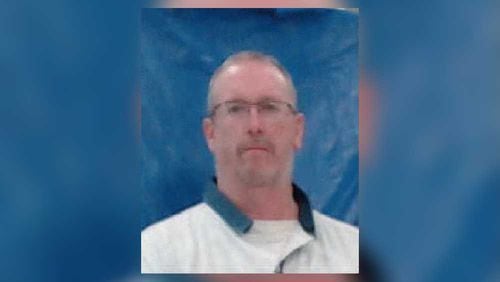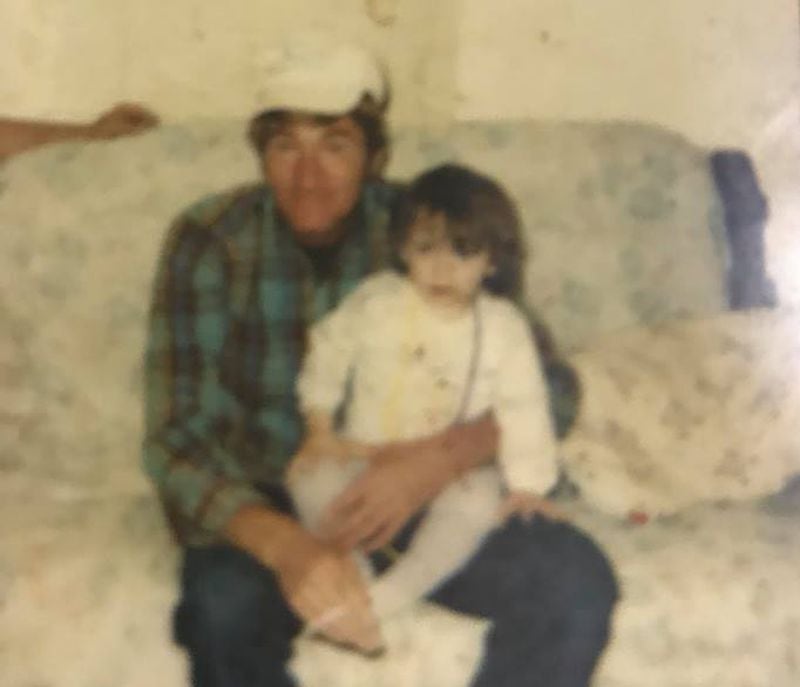Almost 23 years have passed since Patricia Dowell’s father was beaten to death, and she thought his killer would die in prison.
Robert Carey Seymour, 55, was sentenced to life in prison and has already been denied parole three times. But now he has advanced cancer.
Recently, Dowell received a letter from the State Board of Pardons and Paroles that her father’s killer was being considered for a halfway house and eventual parole.
“I never thought in 20 years I would ever have to deal with this again,” said Dowell, Donald Luke Bratcher’s daughter. “I thought he was in prison forever…. And here it is. I don’t know how to deal with it. My heart is beating 90 miles a minute just talking about it.”
The decision will rest with the five members of the state’s Board of Pardons and Paroles. The board, appointed by the Governor, must choose between the dying prisoner and the family who long ago suffered their own loss.
Will the board heed her family’s pleas to keep Seymour in prison for life, she wonders?
Credit: Family photo
Credit: Family photo
Yet on the other side of the issue is Seymour’s family. His mother and sister want him paroled so he can die at home.
Seymour’s sister has told the Bratcher family that they are sorry, Seymour is sorry.
But ‘sorry’ isn’t enough for the Bratcher family.
“All we can do is just pray they don’t let him out,” said Dowell, a 49-year-old grandmother who lives in Royston.
The circumstances of many cases are simple. But the decision of whether to grant clemency is not. To make the decision, the parole board will pore over a file that includes investigations of the inmate’s history, his crime, his experience in prison and the recommendations of the agency’s staff. Three of the five members must agree to grant or deny parole. A decision on Seymour’s request is expected sometime after mid-July.
The case received little public attention. Only local papers covered Bratcher’s murder in Elbert County in October 1995 and his guilty plea for murder.
The story seemed straightforward enough: One man killed the other, supposedly for money.
Nothing sensational.
MORE: Lawsuit complains of ‘draconian’ isolation conditions
The two men met at the motel in Elberton where Bratcher had rented a room for a week while he looked for work in Elberton, the “granite capital of the world” and the source for about two-thirds of headstones produced in the U.S.
On the same day they met, Seymour agreed to drive Bratcher to his daughter’s house 20 miles away in Hart County so he could give her money for her light bill; if she needed it.
On the drive back to Elberton, they stopped so Bratcher could relieve himself on the side of the road, and that was when Seymour pounded him with his fists and a piece of cement for the $80 in his pocket.
Seymour left Bratcher’s body in the woods and drove on to Elberton, where he was soon arrested for stealing items from the motel where he was staying.
Worried because she could not reach her father for three days, Dowell pestered local law enforcement, checked area hospitals and even confronted Seymour at the Elbert County Jail.
Even after police agreed to take a missing person’s report, another 10 days passed before Bratcher’s decomposing body was found. The elements and animals had left him unrecognizable.
“His whole face was gone,” Dowell said. “All that was there was his skull and a circle around his skull was his hair laying there.”
That is Dowell’s memory.
Seymour’s family declined to be interviewed for this story. But Bratcher’s granddaughter, Jessica Christian, said she has talked to Seymour’s sister a few times via personal message on the Elberton Rants and Raves Facebook page.
“I talked to his sister and she feels our pain,” Christian said, describing their exchange. “She wanted to let me know how sorry he is and what he’s done in prison and what led him to drugs and why he was in the hotel room.”
Christian put a petition on Change.org that detailed what happened to her grandfather and asked people to sign it to show support for keeping Seymour in prison. Almost 1,200 people have signed, with some also posting nasty comments. The petition was sent to the board, along with letters to be placed in Seymour's file, which includes a report from staff interview with the inmate and the findings of an extensive investigation of his history, his crime and his years in the Georgia prison system.
The board members will make their decision based on the contents of that file; there is no hear or inmate meeting with a board member.
IN OTHER NEWS:
“Restoring both the victim and offender is important,” board Chairman James Mills wrote in the agency’s annual report. “It’s a balancing act between the two. Striking that balance of compassionate mercy for the victims while seeking justice and appropriate mercy for the offender is truly a challenge.”
In almost all the cases they consider, there is little if any public attention unless an inmate is released and commits a violent crime that draws media coverage.
But for the Bratcher and Seymour families, as in the cases of others, the decision by the Parole Board means everything to them.
Christian, 4 years old when her “Papa” was murdered, told Seymour’s sister she “was sorry for some of the nasty comments — that I wanted to find closure.”
“If he gets out, we have to be okay with that. We also have to be able to come to peace with it if he’s out,” Christian said. “We don’t know if he meant to kill him or not. He dragged him into the words and left him.”
Christian said in their exchanges that Seymour’s sister has been kind. “She didn’t do it. I feel bad for her. He (Seymour) was on drugs then.”
But Christian’s mother, Dowell, said for now she wants no part of Seymour’s family, though her feelings about them have mellowed some since their interactions in court almost 25 years ago.
But, Dowell adds that Seymour’s sister “can go see her brother. She can love her brother. … I hate it for her. I do. Because she has told Jessica she loves her brother and her brother is very sorry for what he did, that her brother is not that person. Drugs caused it… Good for you. If I go see my dad, it’s in a graveyard.”
Thousands of clemency requests each year
Seymour’s case is one of hundreds of inmates serving life sentences that the five-member Georgia Board of Pardons and Paroles will consider for clemency.
In the fiscal year that ended June 30, 2017, the five-member board reviewed the cases of 1,575 inmates serving life sentences— some of whom request consideration for parole and others who are due to be paroled. The board granted parole to 104 of them. In fiscal year 2017 the board granted parole to the smallest number of “lifers” in five years.
FY 2016 — 1,667 life sentences reviewed, 163 paroles granted.
FY 2015 — 1,381 life sentences reviewed, 151 paroles granted.
FY 2014 — 710 life sentences reviewed, 133 paroles granted
FY 2013 — 1,289 life sentences reviewed, 144 paroles granted
About the Author







